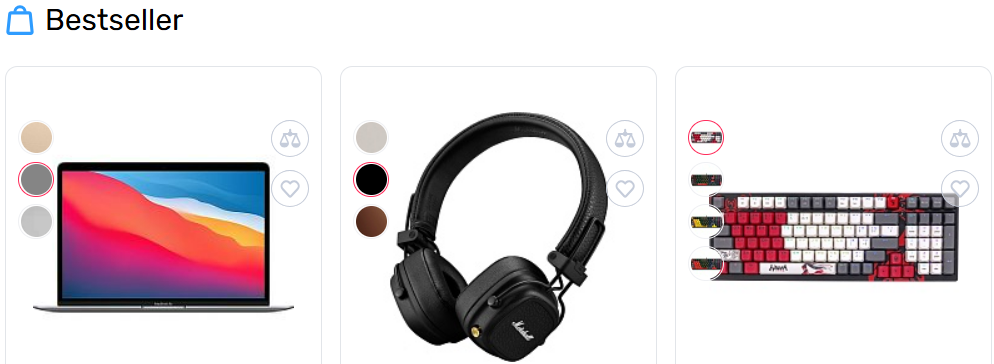The Future of Touch: How Online Smartphones Are Revolutionizing Our Digital Experience
Introduction to the evolution of touch technology
The world of technology is nothing short of fascinating. Just a few decades ago, touch screens were a novelty, something we saw in sci-fi movies or cutting-edge tech demos. Fast forward to today, and touch technology has become an integral part of our daily lives. Now, with the rise of online smartphones, we’re experiencing a revolution that’s changing how we interact with the digital world.
Imagine holding your entire life—your work, social connections, entertainment—in the palm of your hand. Online smartphones have transformed this vision into reality by marrying advanced touch capabilities with seamless connectivity. These devices are more than just phones; they are gateways to immersive experiences and endless possibilities.
As we delve deeper into how these innovations shape our future interactions with technology, it’s clear that we’re only scratching the surface. The landscape is evolving rapidly, and it invites us all to explore what lies ahead in this brave new digital era.
The rise of online smartphones and their impact on our daily lives
The landscape of communication has shifted dramatically with the rise of online smartphones. These devices have become extensions of ourselves, weaving seamlessly into our daily routines.
From waking up to a morning briefing on the latest news to setting reminders for important tasks, smartphones are central to how we organize our lives. They connect us not just through calls and texts but also via social media platforms that keep us engaged with family and friends around the globe.
Shopping, banking, and even working can be done from anywhere at any time. The convenience is unparalleled. We can access information instantly, making decisions quicker than ever before.
Moreover, these gadgets serve as gateways to immersive experiences in entertainment and education. Streaming shows or learning new skills has never been easier or more accessible—transforming mundane moments into opportunities for connection or growth.
Benefits of using online smartphones for a more immersive digital experience
Online smartphones have transformed the way we engage with digital content. Their touch interfaces allow for intuitive navigation that feels natural and fluid.
Users can interact with apps and websites in a tactile manner, enhancing engagement levels significantly. This hands-on approach makes tasks like gaming or shopping feel more dynamic.
The integration of high-resolution displays adds another layer to this experience. Vivid colors and sharp details captivate users, drawing them deeper into virtual environments.
Moreover, online smartphones often support haptic feedback technology. This feature provides physical sensations during interactions, creating a multisensory experience that resonates emotionally.
With augmented reality applications on the rise, these devices are not just tools anymore; they’re gateways to immersive worlds waiting to be explored. Users can step beyond mere observation into active participation through their screens.
Emerging technologies that are enhancing the future of touch on online smartphones
Emerging technologies are reshaping how we interact with smartphones. Haptic feedback is one of the most exciting advancements. It allows users to feel textures and sensations, making digital interactions more lifelike.
Another game-changer is augmented reality (AR). This technology overlays digital elements onto our physical world, creating immersive experiences that engage our sense of touch in unique ways. Imagine feeling the weight or texture of a virtual object right from your screen.
Gesture recognition also plays a crucial role. By using sensors and cameras, smartphones can interpret hand movements as commands, reducing the need for physical touching altogether.
Artificial intelligence (AI) enhances personalization in touch technology. AI learns user preferences and adapts responses accordingly, offering customized haptic feedback based on individual needs. These innovations promise not only to improve usability but also to redefine how we perceive interaction through our devices.
Potential applications and industries that will be transformed by this technology
The potential applications of enhanced touch technology on online smartphones are vast and varied. Healthcare is one industry poised for transformation. Imagine doctors using their devices to interactively explore patient data with a tactile interface, making real-time decisions more intuitive.
Education stands to gain significantly as well. Students can engage in immersive learning experiences, manipulating 3D models right from their phones. This interactive method fosters deeper understanding and retention of complex subjects.
Retail could see a fundamental shift too. Shoppers might virtually “try on” clothes or manipulate products through haptic feedback, creating a more engaging shopping experience from the comfort of home.
Even entertainment sectors will evolve, allowing creators to develop richer narratives where users can physically interact with story elements. These innovations promise not just improved engagement but also new business opportunities across various fields.
Ethical considerations and concerns surrounding the use of online smartphones for touch
As online smartphones become central to our interactions, ethical concerns emerge. One key issue is privacy. Touch technology collects vast data on user preferences and behaviors. This raises questions about who owns this information.
Another concern is accessibility. Not everyone can afford the latest devices with advanced touch capabilities. This digital divide could widen societal inequalities, leaving some people at a disadvantage.
Moreover, there’s potential for addiction. The immersive experiences provided by these devices may lead users to disengage from real-world interactions. Balancing screen time with face-to-face communication becomes crucial.
There’s the environmental impact of constant upgrades and e-waste generated by discarded phones. Sustainable practices must be considered as we embrace new technologies in our daily lives.

Conclusion
The future of touch technology is an exciting frontier. Online smartphones are not just devices; they’re gateways to immersive digital experiences that enhance our everyday lives. As these smartphones continue to evolve, the benefits become more apparent—effortless interaction, rich sensory feedback, and a deeper connection with content.
Emerging technologies like haptic feedback systems and augmented reality are pushing boundaries even further. Industries from gaming to healthcare stand on the brink of transformation, offering innovative applications that were once only imagined in science fiction.
However, as we embrace these advancements, ethical considerations must remain at the forefront. Issues such as privacy, security, and dependency require careful navigation to ensure that progress serves humanity positively.
As we look ahead, it’s clear: online smartphones will redefine how we interact with the digital world. The possibilities are vast and varied—and so is our opportunity to shape this new era responsibly for everyone involved.

